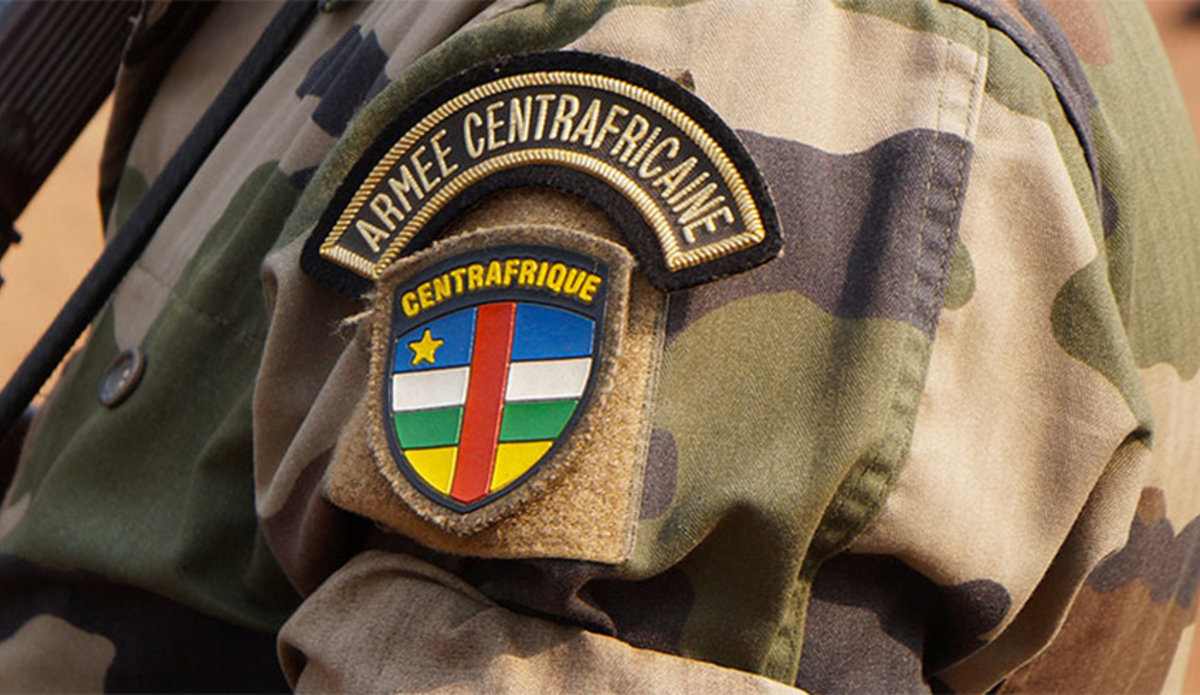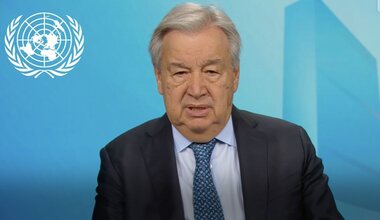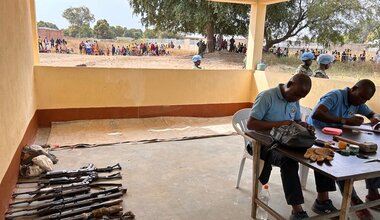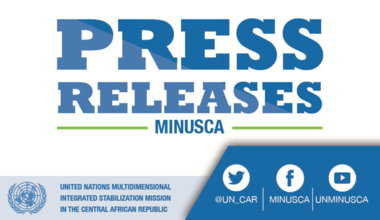The new Military Code of Justice brought to the attention of the central African armed forces
On April 8th, the Camp ‘’Bataillon du Soutien et de Service’’ (Camp BSS) of Bangui hosted the launch of the awareness campaign on the new Military Code of Justice to the attention of the Armed Forces of the Central African Republic (FACA) and Internal Security Forces (ISF) personnel. It was essential for the Central African Republic to establish Accountability and Corrective Measures & Mechanisms, for the deployment of the newly recruited and current FACA personnel.
Finalized in 2017, this code aims at improving the nation’s Security Sector Reform (SSR) to meet international standards in accountability within the military services provided to the government and people of Central African Republic. This campaign is the 3rd and last phase of a project started in 2018, which has already led to the development of workshops dealing with the training of information gathering and information sharing.
As a result of the previous phases, educators are now ready to be deployed in the country's areas most in need of these capabilities. According to Kenneth Gluck, Deputy Special Representative of the Secretary-General for Political Affairs and protection of civilian, the launching of this campaign is entirely appropriate as the implementation of the Peace Agreements of February 6th, 2019 is currently taking center stage. Mentioning the primary goal of this campaign, he explained that it would contribute to better accountability of the country's Security Forces which now come with articulable goals and methods that enhance and encourage a democratic process in the governing of the country's internal security procedures.
"Vulgarizing the Military Code of Justice through sensitization, training and information workshops for the security forces and the general public is a necessity to improve the civilian-military relationship", he argued.
Words that Mody Berethe, Director of the Security Sector Reform Unit at the United Nations Multidimensional Integrated Stabilization Mission in the Central African Republic (MINUSCA) echoed: "It is of vital importance that the armed forces in Central African Republic that are working with the population are made responsible of their actions and behaviors".
The new Military Code of Justice to clearly define roles
Lieutenant-Colonel Arcadius Betibangui, Chief of staff of the Minister of Defense, could not agree more as he explained that the security sector needs to uphold international standards and help set up an army that is republican, multi-ethnic and respectful of human rights. He further added "It is necessary that our soldiers know that someone is watching them to prevent crimes against the general population”.
The new Military Code of Justice contains the organizational and operational details of the different military mandates for each military unit. Also, it lists various military offenses and their related sanctions. Benoit Narcisse Foukpio, the Prosecutor of military justice, said more on the technical aspects of this reform. According to him, three military courts are to be set up in Bangui, Bambari, and Bouar. These courts will judge two categories of infractions: those purely military and those based on common law committed by the Defense and Security Forces in their areas of responsibility in the performance of their duties. In addition to those three courts, three additional judicial courts in those same jurisdictions will also be set up with the authority and power to "Court-martial" members of the armed services accused of offenses against military law. In order for the new Military Code of Justice to apply, the infractions must be criminal and committed in the performance of their official duties. "For instance, a member of the FACA who commits a crime in his place of residence would not be judged under military law but common law. Conversely, any citizen that would have taken arms against the Republic could be judged either by a military Tribunal or a Court-martial’’, he added
This new Military Justice system is in addition to the Special Penal Court (SPC) of Bangui. It aims at creating a perennial judiciary mechanism that will solely handle the criminal infractions which may have occurred after its establishment in 2017, whereas the SPC is an international penal jurisdiction. The latter is by essence ephemeral and will only deal with infractions related to war crimes, genocide crimes, aggressive crimes and a crime against humanity that would have been committed during the crisis era of 2013-2014.
 UN
UN United Nations Peacekeeping
United Nations Peacekeeping





